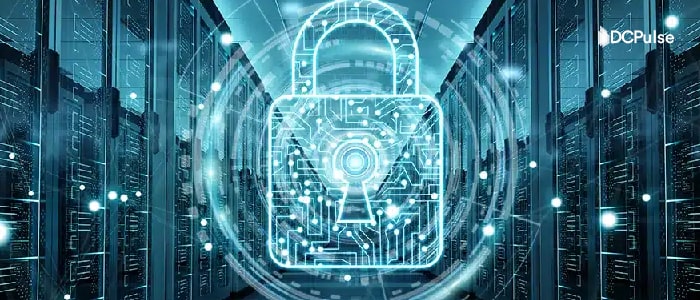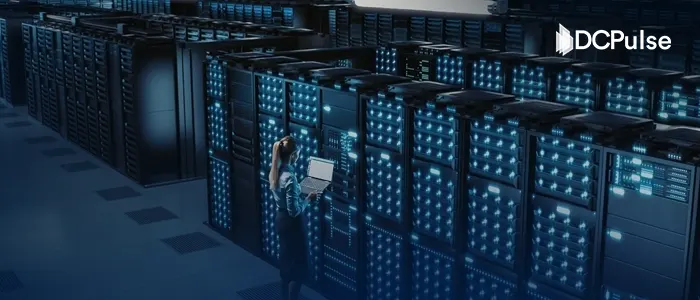In an era where data is the lifeblood of digital operations, security compliance has become an essential component of modern data center management. Organizations depend on data centers to store, process, and secure vast amounts of sensitive information, making security compliance a fundamental aspect of maintaining trust, operational integrity, and regulatory adherence. This article explores why security compliance is critical for modern data centers, the challenges faced, and the measures necessary to ensure compliance in an ever-evolving threat landscape.
The Growing Threat Landscape
Modern data centers are prime targets for cyber threats, including ransomware attacks, data breaches, and insider threats. As cybercriminals employ increasingly sophisticated methods, organizations must implement stringent security measures to safeguard their infrastructure. Compliance standards such as ISO 27001, SOC 2, and NIST provide frameworks that help data centers mitigate security risks and ensure best practices are followed.
Without adherence to established security standards, data centers risk exposure to cyberattacks that can result in financial losses, reputational damage, and regulatory penalties. Security compliance ensures that robust encryption, access controls, and monitoring mechanisms are in place to prevent unauthorized access and mitigate vulnerabilities.
Regulatory Requirements and Legal Implications
With the rise of data privacy laws such as the General Data Protection Regulation (GDPR) and the California Consumer Privacy Act (CCPA), data centers are required to comply with strict regulations to protect user data. Non-compliance can result in significant fines, legal actions, and business restrictions.
Security compliance ensures that data centers implement policies for data retention, access management, and incident response. By aligning with regulatory requirements, data centers not only avoid legal repercussions but also demonstrate a commitment to maintaining high security standards.
Protecting Sensitive Data and Intellectual Property
Data centers store vast amounts of sensitive information, including customer records, financial transactions, and proprietary business data. A security breach can lead to the loss of intellectual property, compromise customer trust, and disrupt business operations.
Implementing compliance-driven security measures such as multi-factor authentication, data encryption, and intrusion detection systems helps protect sensitive data from unauthorized access. These security controls also help organizations meet industry-specific requirements, such as HIPAA for healthcare and PCI DSS for payment processing.
Ensuring Business Continuity and Disaster Recovery
Security compliance plays a crucial role in business continuity and disaster recovery planning. Data centers must have protocols in place to prevent and respond to security incidents, ensuring minimal downtime and quick recovery in the event of an attack.
Compliance frameworks often include requirements for backup strategies, redundancy planning, and incident response procedures. By adhering to these guidelines, data centers can enhance resilience against cyber threats, natural disasters, and system failures, ensuring uninterrupted service for customers and stakeholders.
Building Trust with Customers and Partners
In today’s digital economy, trust is a valuable asset. Customers and business partners expect data centers to adhere to strict security standards to safeguard their data. Achieving security compliance demonstrates a commitment to data protection and fosters trust among stakeholders.
Compliance certifications serve as proof that a data center follows industry best practices, making it easier to attract clients who prioritize security. Organizations that meet compliance standards are also more likely to establish partnerships with enterprises that require high levels of data protection.
Reducing Financial and Operational Risks
Security breaches can result in significant financial losses due to regulatory fines, lawsuits, and reputational damage. Non-compliance increases the likelihood of data breaches and operational disruptions, leading to costly recovery efforts and potential loss of business.
By proactively addressing security compliance, data centers can mitigate financial risks associated with data breaches. Regular audits, vulnerability assessments, and continuous monitoring help identify and remediate security gaps before they become major threats.
Addressing Insider Threats and Access Management
One of the biggest security risks faced by modern data centers is insider threats. Employees, contractors, and third-party vendors often have access to critical systems, making access management a key component of security compliance.
Compliance frameworks mandate strict access control policies, ensuring that only authorized personnel can access sensitive data. Role-based access controls, user activity monitoring, and regular security training help prevent unauthorized data access and reduce the risk of insider threats. Leading examples like the Cielo Digital $2.1 Billion Data Center in Cherokee County demonstrate how tailored infrastructure supports stringent security and compliance measures.
Adapting to Emerging Technologies and Security Challenges
As technology evolves, data centers must continuously update their security strategies to address new challenges. The adoption of cloud computing, edge computing, and artificial intelligence introduces new attack vectors that require proactive security measures. In addition to stringent security protocols, with AI's increasing power demands, modern data centers face critical challenges in scaling infrastructure and managing energy consumption.
Compliance standards evolve to keep pace with emerging threats, providing data centers with guidelines for securing modern infrastructure. Regular compliance assessments help data centers stay ahead of cybercriminals and adapt to the changing security landscape.
Conclusion
Security compliance is no longer optional for modern data centers; it is a necessity. With growing cyber threats, stringent regulatory requirements, and increasing reliance on digital services, ensuring compliance is critical to maintaining data integrity, protecting sensitive information, and safeguarding business operations.
By implementing industry-standard security practices, continuously monitoring threats, and adhering to compliance frameworks, data centers can build a resilient and trustworthy infrastructure. As the digital landscape continues to evolve, prioritizing security compliance will remain essential for mitigating risks, enhancing customer confidence, and ensuring long-term success.





